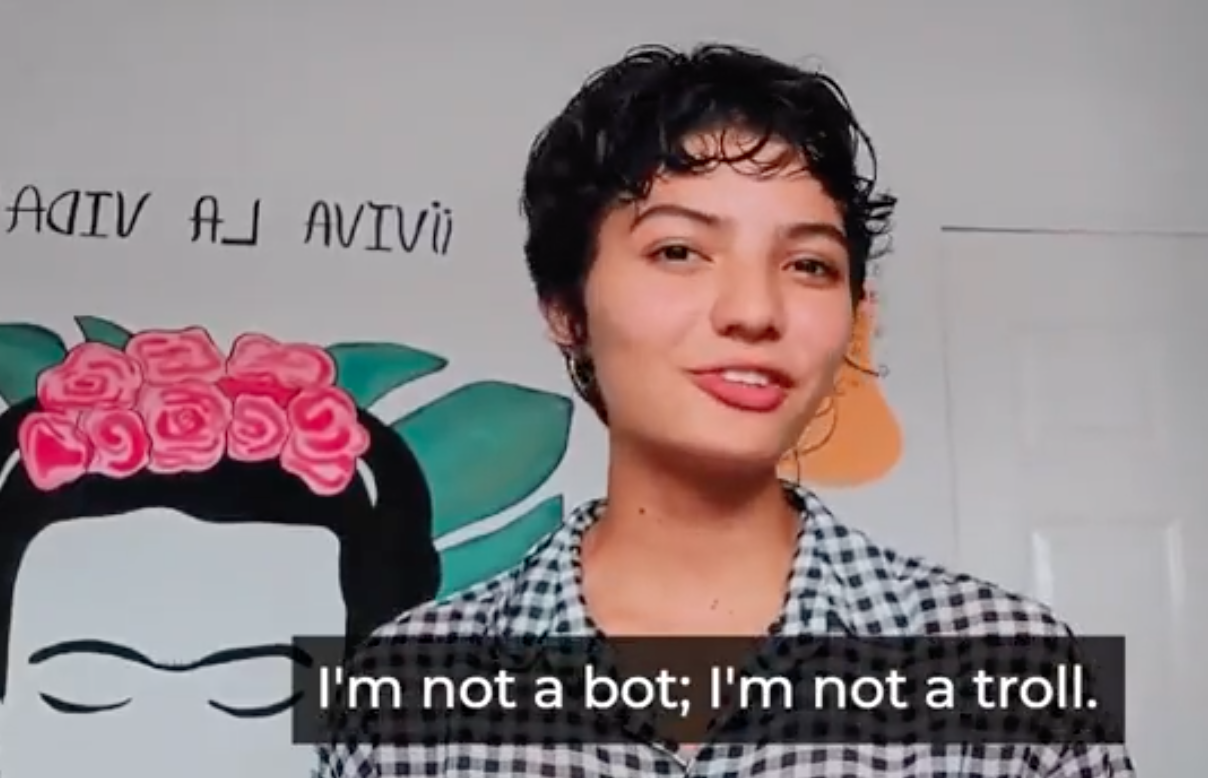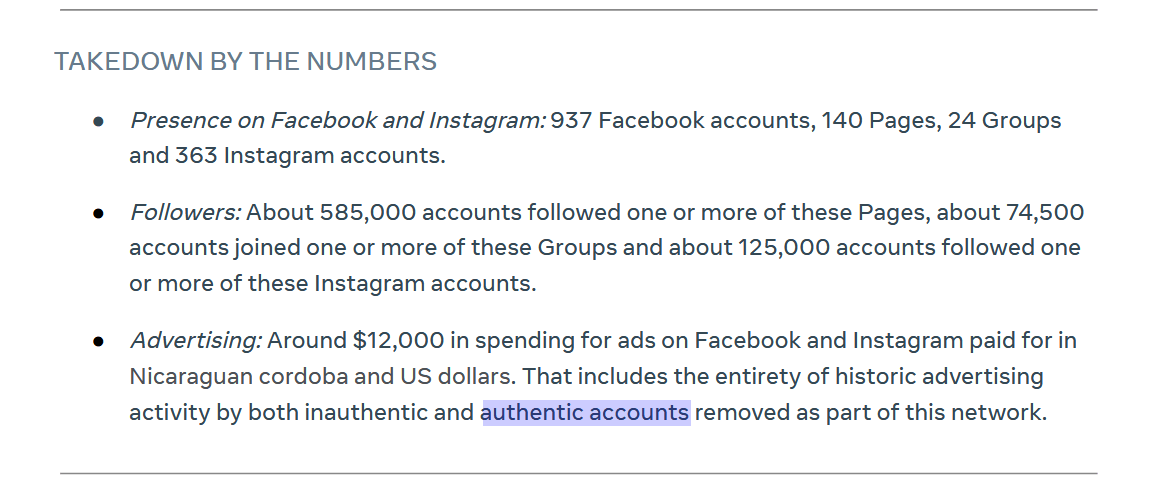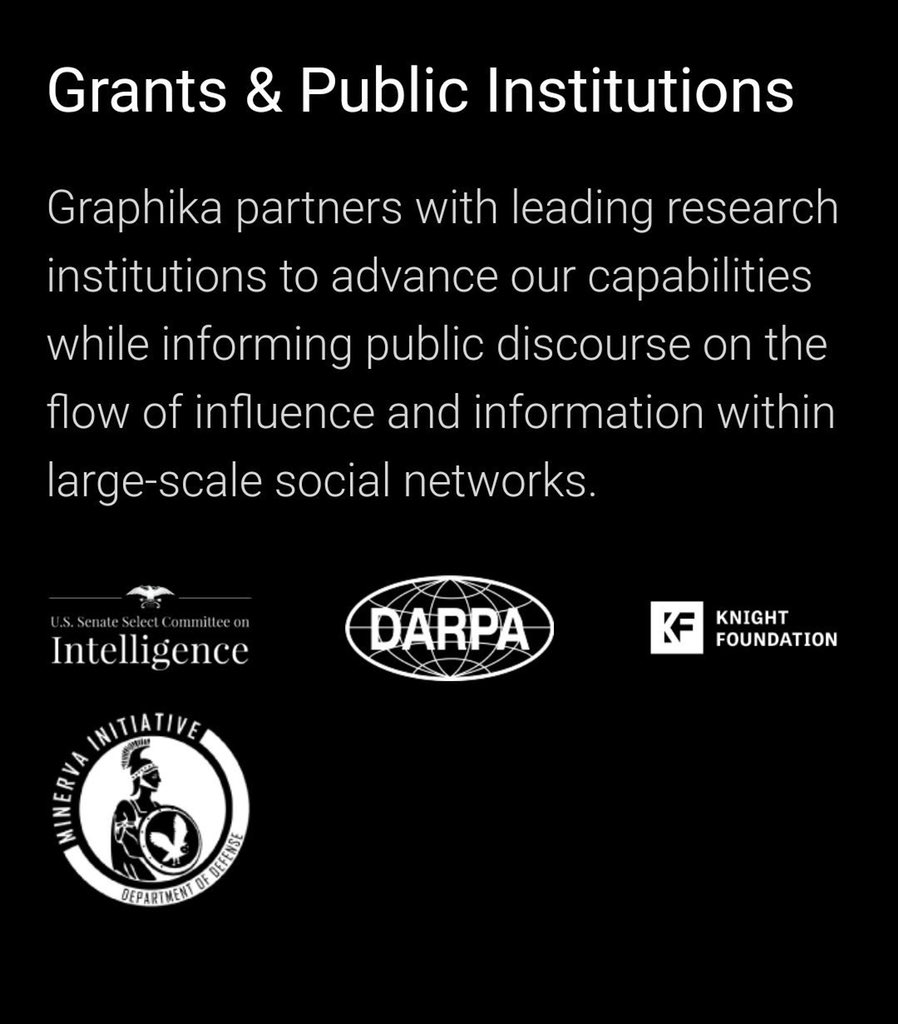Silicon Valley’s crackdown was part and parcel of the U.S. government’s political assault on the country, writes Ben Norton.

Video still of Ligia Sevilla, one of the Sandinista activists whose Facebook account was just censored. (Ben Norton, The Grayzone)
By Ben Norton
in Managua, Nicaragua
The Grayzone
(Puede leer este informe en español aquí.)
 Just days before Nicaragua’s Nov. 7 elections, top social media platforms censored top Nicaraguan news outlets and hundreds of journalists and activists who support their country’s leftist Sandinista government.
Just days before Nicaragua’s Nov. 7 elections, top social media platforms censored top Nicaraguan news outlets and hundreds of journalists and activists who support their country’s leftist Sandinista government.
The politically motivated campaign of Silicon Valley censorship amounted to a massive purge of Sandinista supporters one week before the vote. It followed U.S. government attacks on the integrity of Nicaragua’s elections, and Washington’s insistence that it will refuse to recognize the results.
The United States sponsored a sadistically violent coup attempt in Nicaragua in 2018, which resulted in hundreds of deaths in a desperate effort to overthrow the democratically elected government of President Daniel Ortega.
Since the putsch failed, both the Donald Trump and Joe Biden administrations have imposed several rounds of devastating sanctions on Nicaragua. The U.S. Congress plans to levy new heavy-handed sanctions against Nicaragua following the Nov. 7 elections.
Silicon Valley’s crackdown on pro-Sandinista journalists and activists was part and parcel of the U.S. government’s political assault on Nicaragua.
Facebook and Instagram – both of which are owned by the newly rebranded Big Tech giant Meta – suspended 1,300 Nicaragua-based accounts run by pro-Sandinista media outlets, journalists and activists in a large-scale crackdown on Oct. 31.
Days before, Twitter did the same, purging many prominent pro-Sandinista journalists and influencers.
On Nov. 1, Sandinista activists whose accounts were suspended by Facebook and Instagram responded by posting videos on Twitter, showing the world that they are indeed real people. But Twitter suspended their accounts as well, seeking to erase all evidence demonstrating that these Nicaraguans are not government bots or part of a coordinated inauthentic operation.
Twitter’s follow-up censorship was effectively a double-tap strike on the freedom of speech of Nicaraguans, whose apparent misdeed is expressing political views that challenge Washington’s objectives.
Insane! Facebook/Instagram falsely claimed left-wing Nicaraguans are govt-run bots, censoring them. So they posted videos on Twitter showing they're real. But now Twitter is suspending them too!
This is a coordinated purge of Sandinistas, days before Nicaragua's Nov. 7 election https://t.co/sB7COoxl7Q pic.twitter.com/E2EPVAK5tx
— Ben Norton (@BenjaminNorton) November 1, 2021
The thousands of accounts censored by Facebook, Instagram, and Twitter collectively had hundreds of thousands of followers, and represented some of the biggest and most influential media outlets and organizations in Nicaragua, a relatively small country of 6.5 million people.
U.S. Big Tech companies suspending all of these accounts mere days before elections could have a significant, tangible impact on Nicaragua’s electoral results.
The purges exclusively targeted supporters of the socialist, anti-imperialist Sandinista Front party. Zero right-wing opposition supporters in Nicaragua were impacted.
Facebook published a report on Nov. 1 claiming the Sandinistas it censored were part of a “troll farm run by the government of Nicaragua and the Sandinista National Liberation Front (FSLN) party” that had engaged in “coordinated inauthentic behavior.”
This is demonstrably false. In reality, what Facebook/Instagram did is purge most high-profile Sandinista supporters on the platforms, then try to justify it by claiming that average Sandinista activists are actually government-run bots.
Facebook implicitly admitted this fact by conceding in the report that there were “authentic accounts” purged in the massive social media crackdown. But Facebook refused to differentiate between the authentic accounts and the alleged “inauthentic” accounts, naming none and instead lumping them all together in order to justify erasing their digital existence.
 Unlike Facebook’s investigators, this reporter, Ben Norton, is based in Nicaragua and personally knows dozens of the Nicaraguans whose accounts were censored, and can confirm that they are indeed real people organically expressing their authentic opinions — not trolls, bots or fake accounts.
Unlike Facebook’s investigators, this reporter, Ben Norton, is based in Nicaragua and personally knows dozens of the Nicaraguans whose accounts were censored, and can confirm that they are indeed real people organically expressing their authentic opinions — not trolls, bots or fake accounts.
I interviewed more than two dozen Sandinista activists whose personal accounts were suspended and published videos of some of them below, to prove that Facebook’s claims are categorically false.
Facebook’s Security Team
The Facebook report falsely depicting average Sandinista activists as government trolls was co-authored by Ben Nimmo, the leader of Meta’s “Threat Intelligence Team.”
The Grayzone has exposed Nimmo as a former press officer for the U.S.-led NATO military alliance and paid consultant to an actual covert troll farm: the Integrity Initiative, which was established in secret by British military officers to run anti-Russian influence operations through Western media.
Nimmo has served as head of investigations at Graphika, another information warfare initiative that was set up with funding from the U.S. Defense Department’s Minerva Institute and operates with support from the Pentagon’s top-secret Defense Advanced Research Projects Agency (DARPA).

(From Graphika’s website)
Nimmo, who is also a senior fellow at the Western government-funded Atlantic Council, meddled in Britain’s 2020 election by smearing leftist Labour Party Leader Jeremy Corbyn as the vessel for a supposed Russian active measures operation.
The latest Nimmo-engineered pseudo-scandal highlights Facebook’s role as an imperial information weapon whose security team has been essentially farmed out of the U.S. government.
The head of security policy at Facebook, Nathaniel Gleicher, promoted Nimmo’s report, echoing his false claims.
Before moving to Facebook, Gleicher was director for cybersecurity policy at the White House National Security Council. He also worked at the U.S. Department of Justice.
Gleicher clarified that when Facebook accused Nicaragua of running a supposed “troll farm,” it “means that the op is relying on fake accounts to manipulate & deceive their audience.”
According to this definition, Facebook’s report is completely wrong. Many of the accounts it suspended were run by everyday Nicaraguans, and The Grayzone has interviewed them and posted videos below.
1/ Today we shared the removal of a domestic CIB network in Nicaragua that was run by the government of Nicaragua and the Sandinista National Liberation Front (FSLN) party.https://t.co/505nHhgljV
— Nathaniel Gleicher (@ngleicher) November 1, 2021
Facebook’s “director of threat disruption,” David Agranovich, also shared Nimmo’s false report.
Like Gleicher, Agranovich worked at the U.S. government before moving to Facebook, serving as director of intelligence for the White House National Security Council.
1/ Today we shared our latest monthly CIB report, which includes a deep-dive into a network in Nicaragua that was run by the government of Nicaragua and the Sandinista National Liberation Front (FSLN) party. https://t.co/2S36MInjeh
— David Agranovich (@DavidAgranovich) November 1, 2021
Both of these U.S. National Security Council veterans actively promoted Facebook’s coordinated purge of pro-Sandinista Nicaraguans.
If you want to know why Facebook/Instagram is purging average Nicaraguans, falsely claiming they're gov't "trolls," this might explain why:
This is Facebook's director of "threat disruption." He was formerly director of intelligence for the White House National Security Council https://t.co/L8vtdX5kkv pic.twitter.com/7quffeeo5l
— Ben Norton (@BenjaminNorton) November 1, 2021
The Grayzone contacted Facebook with a request for comment. The head of security communications, Margarita Z. Franklin, replied without any comment, simply linking to Nimmo’s report.
When The Grayzone followed up and asked Franklin about Facebook suspending many real-life Nicaraguans who support their government but are very much not bots, she did not respond.
Meet the Censored
The Grayzone spoke with more than two dozen living, breathing Sandinista activists, whom this reporter knows and has met in person, and who were purged in the social media crackdown.
Many said this was the second or third time their accounts had been censored. Several had their Facebook and Twitter accounts removed during a violent U.S.-backed right-wing coup attempt in 2018.
Multiple activists said they are afraid Washington will sponsor another coup attempt or destabilization operations following Nicaragua’s Nov. 7 elections, and because they were banned on social media, the Sandinista supporters will be unable to inform the outside world about what is actually happening in their country.
Ligia Sevilla
Here is Nicaraguan Sandinista activist Ligia Sevilla @ligiasevilla_, who was censored by Facebook@Meta falsely claimed she's a "fake account," part of a government-run "troll farm"
Will Facebook retract its false claims and restore her account?@benimmo@DavidAgranovich@olgs7 https://t.co/mDx9QvvtlU pic.twitter.com/wpykMeFon7
— Ben Norton (@BenjaminNorton) November 1, 2021
Sandinista influencer Ligia Sevilla, who had more than 5,500 followers on her personal Instagram account, which was suspended along with her Facebook profile, proclaimed, “I’m not a bot; I’m not a troll. And my social media accounts were censored. Maybe Facebook doesn’t allow us to be Sandinistas?”
After Sevilla shared this video to verify her authenticity, Twitter suspended her account as well – a sign of a coordinated censorship campaign targeting Sandinistas on social media.
Daniela Cienfuegos & Franklin Ruiz
Daniela Cienfuegos, an activist with the pro-Sandinista Red de Jóvenes Comunicadores (Network of Youth Communicators), posted a video on Twitter saying, “I wanted to tell you that, no, we are not trolls. We are people who dedicate ourselves to communicate from the trenches, to inform the Nicaraguan people, and on the international stage.”
After Cienfuegos published the video, Twitter deleted her account as well.
Sandinista activist Franklin Ruiz, whose personal Facebook page was suspended, published a video message as well: “I want to tell you that we are human beings; we are people who, on Facebook, are defending our revolution, defending our country. We are not bots, as Facebook says, or programmed trolls.”
After Ruiz shared this video on Twitter, the platform purged him too.
And here is Nicaraguan Sandinista activist Franklin Ruiz G. @ElChequelito, whose personal account was censored by Facebook, which falsely claimed he is a government-run bot/troll.
Still no comment on this political censorship by@Meta@benimmo@DavidAgranovich @ngleicher@olgs7 pic.twitter.com/KTthCikmgi
— Ben Norton (@BenjaminNorton) November 1, 2021
Hayler Gaitán & Darling Huete
Hayler Gaitán, another Sandinista activist censored by Facebook, published a video explaining, “I am a young communicator. I am not a troll, as Facebook says, or a bot.”
“I am a young communicator who shares information about the good progress in Nicaragua,” he continued. “We enjoy free healthcare, free education, and other programs that benefit the Nicaraguan people, and that we have been building throughout our history. And they have wanted to take that from us, but they will never be able to.”
After Gaitán posted the video below on Twitter, it suspended his account as well.
Darling Huete is a Nicaraguan journalist whose personal Facebook account was also censored.
“I’m here to tell you that Facebook censored my account, according to it because my account is a troll account or fake account, something that is not true. My account has been active for more than seven years,” she said in a video she posted on Twitter.
“This is clearly political censorship, because I support the government of Nicaragua, so they have decided that my opinion, or my way of thinking, is not appropriate according to the absurd policies of Facebook,” Huete lamented.
After Huete shared this video, Twitter deleted her account, too.
Huete told The Grayzone this is the second time her Facebook and Twitter accounts were suspended. The first time was during the violent U.S.-backed right-wing coup attempt in Nicaragua in 2018.
This is a Nicaraguan journalist, Darling Huete @DarlingHHuete, who was falsely dubbed a "government-run troll" by Facebook and had her personal account suspended.@Meta refuses to comment on this clearly outrageous censorship scandal@benimmo@DavidAgranovich@ngleicher@olgs7 pic.twitter.com/nyjswjo1Fb
— Ben Norton (@BenjaminNorton) November 1, 2021
Facebook, Instagram, Twitter
The above are just a small sample of Nicaraguans who were falsely smeared as “government-run trolls” by Facebook and erased from social media.
But it wasn’t just individual Nicaraguans who were censored. Major Nicaraguan media outlets that provide a pro-Sandinista perspective were also removed.
On the night of Oct. 31, Facebook removed 140 pages and 24 groups, 100 percent of which were pro-Sandinista. Among those deleted were:
- official Sandinista newspaper Barricada, which had more than 65,000 followers
- popular youth-run left-wing media outlet Redvolución, which had more than 81,000 followers
- the Red de Jóvenes Comunicadores, or Young Communicators Network, which brings together journalists and media activists from the Sandinista Youth social movement, and which had more than 71,000 followers
- and the individual profiles of dozens of Nicaraguan journalists, activists, and influencers.
At the exact same time as the Facebook purge, its sister platform Instagram took down many of the same pages:
- Barricada, which had more than 9,500 followers
- Redvolución, which had more than 22,700 followers,
- Red de Jóvenes Comunicadores, which had more than 12,600 followers
- and, once again, the personal pages of dozens of Nicaraguan journalists, activists and influencers.
Instagram also suspended the account of the fashion organization Nicaragua Diseña, which is very popular in Nicaragua, and had more than 42,700 followers.
Unlike the other purged accounts, Nicaragua Diseña is decidedly not a political organization. It is run by Camila Ortega, a daughter of the president, but Nicaragua Diseña intentionally goes out of its way to avoid politics, trying to bring together opposition supporters and Sandinistas in apolitical cultural events.
Just a few days before the coordinated Facebook-Instagram purge, Twitter also removed the accounts of the most prominent pro-Sandinista journalists and influencers on the platform.
On Oct. 28, Twitter suspended the accounts of media activists @ElCuervoNica, @FloryCantoX, @TPU19J, @Jay_Clandestino, and numerous others. Together, these pro-Sandinista communicators had tens of thousands of followers.
Many of them, such as @CuervoNica and @FloryCantoR, had been censored before. This was the second or third account they had created, only to be censored for their political views.
Silicon Valley’s censorship of Nicaragua always goes in one direction: It is leftist, anti-imperialist supporters of the Sandinista government who are censored, while right-wing opposition activists, many of whom are funded by the U.S. government, are verified and promoted by the social media monopolies.
Numerous Nicaraguan journalists whose individual social media accounts were suspended told The Grayzone they were upset and angry, as they had spent countless hours of work over years building their pages, doing journalism, and sharing information. Facebook, Instagram and Twitter deleted all of that labor in mere seconds.
Some said they fear this censorship will also harm them financially, as they had relied on their social media accounts as a source of income.
In addition to clearly infringing on their rights to freedom of the press and freedom of expression, the latest wave of Silicon Valley censorship has done concrete economic damage to working-class Nicaraguans who had relied on Facebook and Instagram to run small businesses. Several of those affected told The Grayzone they are now locked out of the Facebook and Instagram pages they had used to sell products like food, clothing or homemade jewelry.
This Silicon Valley censorship thus not only greatly hinders these working-class Nicaraguans’ ability to do their work as journalists, given social media is an integral part of contemporary journalism, but also deprived them of extra sources of income they had relied on to support their families.
Given the U.S. government’s hyperbolic claims of Russian meddling in its 2016 presidential election, the social media purge it has inspired in Nicaragua is stained with irony. After years of investigations, and billions of dollars spent, the only ostensible evidence Washington found of Russian interference was some Facebook posts, including absurd humorous memes.
If these alleged Russian Facebook memes constitute a Pearl Harbor-style attack on North American democracy, as top U.S. government officials have claimed, then what does it mean for Facebook, Instagram and Twitter to censor highly influential pro-Sandinista media outlets, journalists and activists mere days before Nicaragua’s elections?
Besides meddling in foreign elections, North American social media monopolies have systematically and repeatedly censored journalists, politicians, and activists in numerous countries targeted by Washington for regime change, such as Venezuela, Iran, Syria, Russia and China. On numerous occasions, these Silicon Valley companies have admitted such purges were carried out at the request of the U.S. government.
The Grayzone has documented the many ways in which these Big Tech giants collaborate with Western governments, while promoting U.S. state media and silencing people in countries that Washington has deemed its adversaries.
For their part, the Nicaraguans censored by Facebook and Twitter have vowed to continue their work.
Redvolución wrote that it will keep struggling in the “digital trenches” to “defend the revolution.”
Quenri Madrigal, a prominent Sandinista activist and social media influencer, commented, “We have already witnessed the forms of online censorship targeting other countries, like Cuba, Venezuela, Russia, and Iran. There is a tyranny of transnational technology and social media corporations. They are instruments that don’t belong to the peoples.”
Ben Norton is a journalist, writer and filmmaker. He is the assistant editor of The Grayzone and the producer of the Moderate Rebels podcast, which he co-hosts with editor Max Blumenthal. His website is BenNorton.com and he tweets at @BenjaminNorton.
This article is from The Grayzone.
The views expressed are solely those of the author and may or may not reflect those of Consortium News.

The author is to be commended for not mentiong communism or socialism!
Western colonialism is desperate to stifle dissent against its tyrannical control of humanity. It will fail spectacularly.
so sad that these criminals control the world. How many decades has the USA tried to destroy Nicaragua????? Most of Latin American is still under the thumb of the USA and NOW Venezuela’s President Maduro is to face the International Criminal court for crimes against humanity!!!!!
Ben Norton does an excellent job exposing the abject hypocrisy of “Meta”-Facebook/Instagram and Twitter in complete COLLUSION with the governmental architects of colonialist neoliberal corruption; all in the name of the relentlessly uninformed (and misinformed) U.S. citizens.
“The Public Good Before Private Advantage!”
As Usual,
EA
Maybe they could use Telegram? Obviously, one cannot use American social media as the US controls it which means that it is not free.
Telegram is not free, either. It is proprietary. I wouldn’t trust it.